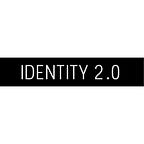May 2023: BeReal, Marilyn Monroe and Forbes’s Favourite Criminals
To Be Real or Not to Be Real
Have you ever used BeReal? If you are unfamiliar with the app, it’s a social media claiming to help users be authentic. Once a day, you are told to share a photo of your life using both the front and forward camera. Miss the two minute window and a label is added to your post telling everyone you posted your photo outside of the time limit. The app also reports on how many photos you have taken and how late they were posted.
Whilst it shot to popularity in October 2022 with 20 million users, it’s reportedly halved by Feb 2023 to 10.3 million users, with just under 6 million active users in March.
This add-free filter-free platform asked users to capture photos in the same moment, giving a snapshot into their life. You only could post once once a day. For some it was refreshing. They only had two minutes to take an image and if it didn’t look the best, they would post it anyway. But as most people found, it just became another platform demanding us to perform. Now we were just on call at all times. Users had anxiety that the notification would go off whilst they were stuck on the toilet or changing a nappy. It forced people to confront their anxieties and apprehension about how they present themselves online.
Curating an online persona isn’t something inherently bad. We all curate our on and offline life — our ‘authentic self’ changes depending on context. We are all constantly growing, learning and changing. So why are we bashing each other over the head to be authentic when it’s a malleable concept?
Is it fair to call BeReal a straight up failure as the daily number of users plummet? Or was it an experiment at something else, making us confront how we think of ourselves online? Maybe it’s both. Even if it didn’t work I think it’s interesting to see it rocket to fame and ultimately fizzle out. A bit like a Tik Tok trend, the app was never going to last but it did make an impression and proves we still have space to experiment a bit.
AI Assemble
This month, Avengers: Endgame co-director Joe Russo told Collider that in two years an AI will be able to make feature-length movies. Yes the guy who made a CGI orgy wants more CGI. To be precise he said:
“Hey, I want a movie starring my photoreal avatar and Marilyn Monroe’s photoreal avatar. I want it to be a rom-com because I’ve had a rough day”
I find this lame because
- AI is a probability machine. No true innovation can come from it, meaning it will make the most boring movie possible. We can’t outsource creativity to statistics.
- Building a curated emotional media to respond to your very specific needs neglects the countless media that already exists to serve your emotional needs. There are incredible romcoms I can put on if I want to feel happier (ofc when Harry Met Sally and 10 Things I Hate About You are top of the list). Media is often made to challenge you, and offer you new points of views.
- This is making art for the sake of a corporation owning it and profiting. I know this is what it means to live in a capitalist society, but his comments reinforce the importance of creating IP rather than an artistic pursuit.
- There is a huge writers strike at the moment, partly fuelled by writers fears of AI. Read the room man.
- LEAVE MARILYN MONROE ALONE. Stop making posthumous movies about this woman. She did not exist to serve your male fantasies.
Go to jail do NOT collect £200
Forbes 30 under 30 list is iconic. It can make careers, even if it has faced fair criticism. Be it a vanity metric or life changing title, it’s certainly changing the economy. As Twitter user @ChrisJBakkle pointed out “The Forbes 30 Under 30 have collectively raised $5.3B in funding. The Forbes 30 Under 30 have also been arrested for frauds and scams worth over $18.5B.” This Guardian article unpacks some of those notable alum fraudstrater including scammer Charlie Javice, crypto bro Sam Bankman-Fried and of Apple TV fame Elizabeth Holmes.
